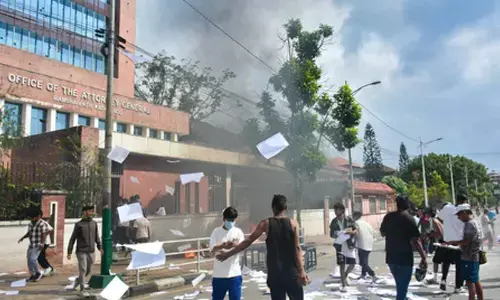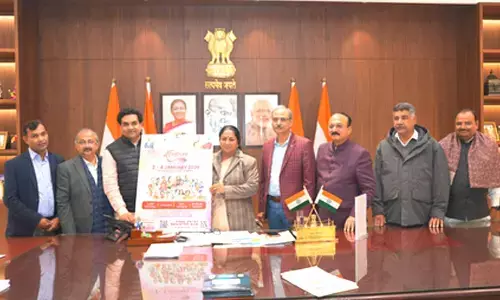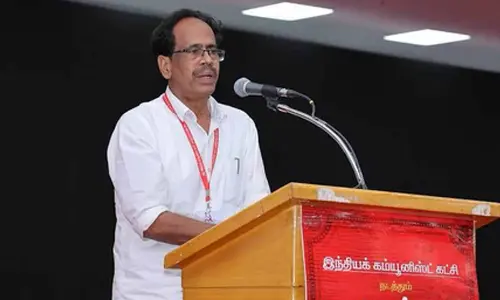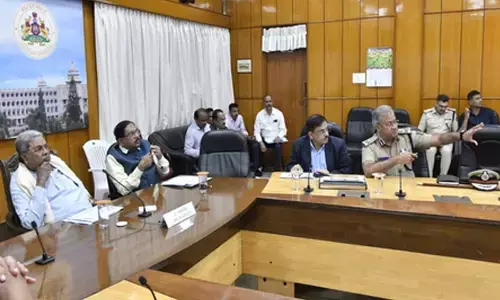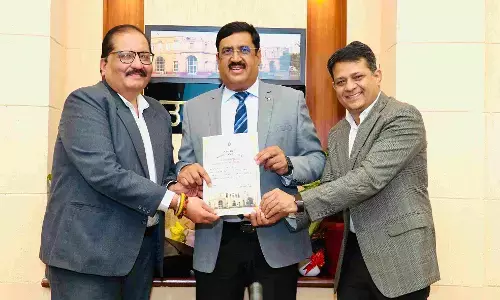A flawed idea
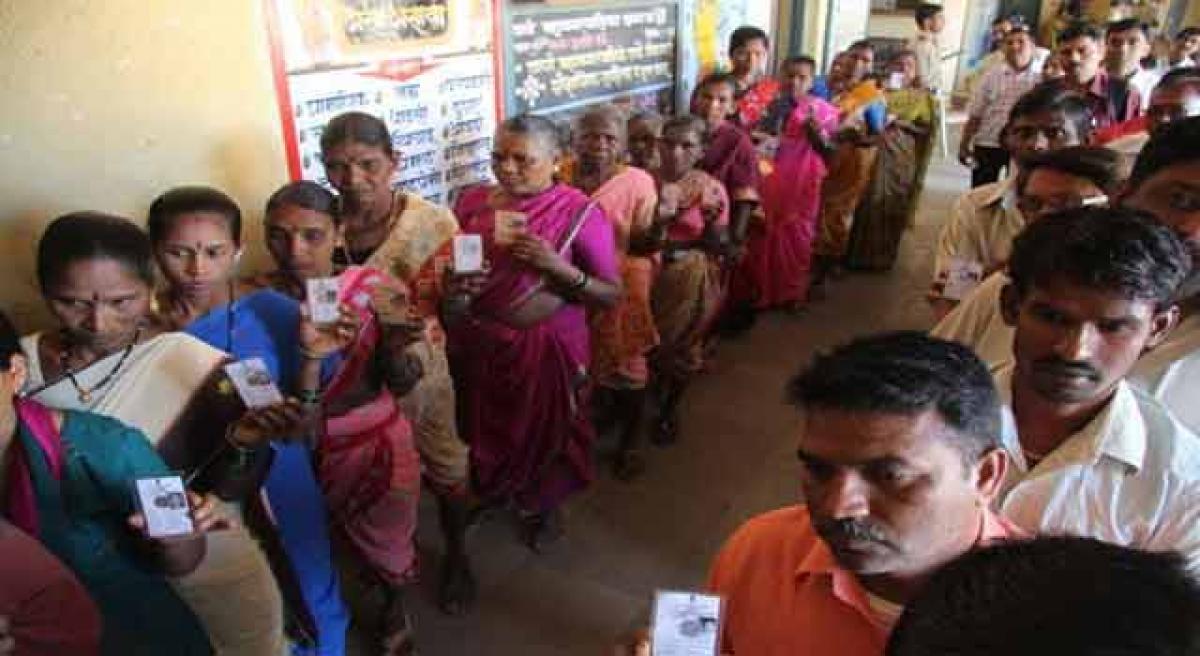
Media reports suggest that government is still non committal on the proposal for simultaneous elections to Parliament and state legislature. The parliamentary standing committee on law and personnel also said that simultaneous elections every five years cannot be held in the near future. But, the political system should reject this undemocratic proposal lock stock and barrel.
Media reports suggest that government is still non committal on the proposal for simultaneous elections to Parliament and state legislature. The parliamentary standing committee on law and personnel also said that simultaneous elections every five years cannot be held in the near future. But, the political system should reject this undemocratic proposal lock stock and barrel.
Prime Minister says that frequent elections impede welfare as governments are periodically subjected to election code and political parties remain perpetually in election mood. But, problems of democracy cannot be tackled through undemocratic solutions.
This proposal is not just impractical, but absolutely unconstitutional. It’s impractical because the political scenario of a diverse country is unsuitable for simultaneous elections. In a multi party political system electoral issues and the mandate differ from state to state and state to nation.
The proposal to hold simultaneous polls is simply unconstitutional as it goes against the federal principles. Federalism forms part of the basic structure of the Indian constitution and therefore even Parliament has no power to amend it. Indian jurisprudence has long held this interpretation.
Therefore, making elections to state legislature coterminous with parliamentary polls tramples upon the rights of the states. This tantamount to coercive federalism but not cooperative federalism. The state legislature in India does not owe its existence to parliament. Instead, both the state and the national legislature draw their powers and functions from the Constitution of India.
In an age of fragmented polity and fractured verdicts with each state having distinctive electoral arithmetic which again is different from that of the Centre, any attempt to club the both will create a constitutional void in states. The advocates of such a proposal argue that simultaneous elections would save money, time and resources.
If this is accepted, one can also demand that elections should be held once in 20 years as it would save more time and money. The government finds it difficult to enact several controversial laws as it lacks majority in Rajya Sabha. This situation emerged as the tenure of both the houses of the parliament is not the same.
Should we also go for simultaneous polls for Rajya Sabha and Lok Sabha? The cure cannot be worse than the disease. Players and issues in elections at state and national level are different. History suggests that people’s mandate also differs. The political situation has become more diverse with the emergence of strong regional parties.
The founding fathers envisioned our Constitution to be federal in normal circumstances and unitary in emergency circumstances. But experience proves to be otherwise. The unitary features prevailed. The misuse and abuse of Article 356 have further eroded the federal character. Now, in the name of simultaneous polls, yet an attempt is made to weaken the states. This would strengthen despotic tendencies and foment fissiparous forces posing a threat to India’s unity and integrity.
Woman injured in stabbing attack in Tokyo, suspect at large
Bengal cop booked for murder over mysterious death of woman home guard, SIT to probe case
Staffer recalls horror of 7-kg gold robbery by armed gang in Karnataka’s Hunsur
25-Year-Old Airline Cabin Crew Member Dies At Gurugram Party; Police Begin Investigation








